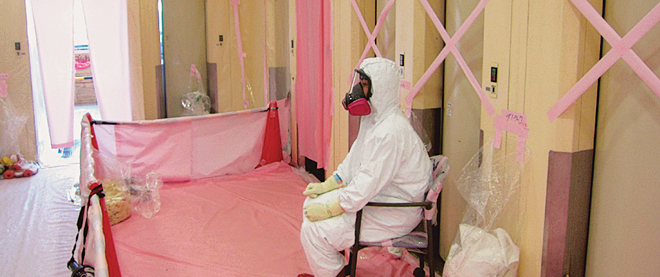Good news, bad news: June 9 – 16, 2011
Dirk Nowitzki is named MVP as his Dallas Mavericks win the NBA title, while nuclear workers in Japan reportedly exceeded radiation exposure limits
David J. Phillip/AP
Share
Good news

Setting it straight
Federal government lawyers took a justified bruising from judges of the Ontario Court of Appeal at hearings on the fate of Canada’s prostitution laws. The Crown is appealing a decision that struck down bans on brothel organizing. The government argued existing Criminal Code provisions had only a “remote connection” with increased sex-trade risks. The judges exploded in disbelief. “What’s ‘remote’ about a law that prevents a prostitute from having a bodyguard?” asked Justice James MacPherson. The judges also admonished an effort to compare prostitutes—practising a business that is legal in itself—with drug pushers.
A slick move
Bowing to technical realities, the U.S. auto-service company Jiffy Lube is abandoning its rule that oil should be changed in any car every 3,000 miles (or 4,800 km). As engines and gasoline quality improve, manufacturers have lengthened recommended intervals between changes to as long as 16,000 km. Jiffy Lube will now follow the makers’ advice for each model. It’s a reminder that even in hard times, the auto sector has been improving in ways we barely bother to notice.
Hardly elemental
The International Union of Pure and Applied Chemistry, an international body that sets scientific naming conventions, approved the addition of two new chemical elements to the periodic table. Elements 114 and 116 were synthesized by U.S. and Russian collaborators in 2004 and 2006; the short-lived artificial radioactives will be known as “ununquadium” and “ununhexium”—Latin translations of their atomic numbers—at least until the discoverers choose permanent names.
Put a lid on it
The U.S. Army backtracked on a 2001 move mandating berets as official combat-dress headgear for all infantry. Traditional beret-wearing units like the U.S. Army Special Forces (Green Berets) had criticized the move as an attempt to co-opt their prestige. But the undoing of the policy was practical; the chic chapeaux collect moisture, offer no sun protection, and are pricey. Special units will keep their traditional berets while ordinary grunts revert to a brimmed patrol cap.
Bad news

Rogue traffic
A U.S. Navy destroyer reportedly intercepted a cargo of missile components headed from North Korea to its fellow rogue state of Burma. USS McCampbell acted with the authority of the UN, which has banned North Korean traffic in missile and nuclear technology. It is suspected, however, that other shipments may have gone through already. In 2010 the Obama administration is said to have been eyeing a Belize-registered North Korean ship bound for Burma, but it decided that the evidence was too weak to support a raid.
Only in our backyard
A wave of “resource nationalism” is sweeping world trade, says the Financial Times. Left-wing governments in Africa spent much of the past decade implementing protectionist policies in oil, gas, and mining businesses. Free trade enjoyed a modest breather with the recession-driven dip in commodity prices, but it is now back under fire—even in developed nations like Australia, which is preparing a “super tax” on resource profits, and the U.K., which applied a new surcharge to North Sea oil in March.
You’ve been tagged
Facebook landed in another privacy pickle after announcing a face-recognition feature that automatically identifies and tags users in uploaded photos. Facebook, which has 600 million users, has received catcalls for forcing people to opt out of the system rather than making it an opt-in service. Either way, the mere possibility of such a software trick is frightening and may have contributed to a modest international exodus from Facebook. A new report says it lost over seven million North American users in May.
Closing up shop
Tiny Empire, Nev., is about to become a symbol of America’s double-dip housing recession. Home to a major gypsum mine, the community is one of the last old-fashioned company towns in the U.S. With new-home construction on hold everywhere and demand for Sheetrock unlikely to rebound, U.S. Gypsum laid off 95 of 99 workers and closed the homes it had been renting to them. Even its postal code is vanishing. “I’ve lost all my friends. All of them,” tearful school secretary Judy Conley told the Las Vegas Review-Journal.